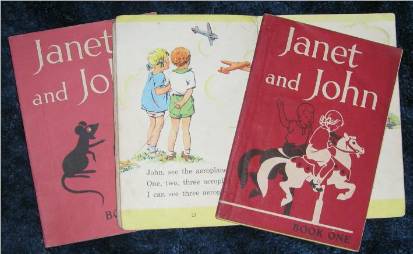Inspiring Young Readers
 posted on 23 Jun 2016
posted on 23 Jun 2016
Keys To The Kingdom
I wonder if you remember learning to read? I ask because I am just reading Francis Spufford’s The Child That Books Built and in it he recalls almost exactly the moment when the words on the page turned from unintelligible cyphers into having meaning. I found myself thinking about this and realising that I quite envied him this memory because I don’t have a similar sense of recall and I feel that in an intangible way I’ve been robbed of some kind of ceremonial moment when the keys to the kingdom of reading were passed on to me.
But there’s more to it than that. Not only do I not remember learning I actually feel like I never had to learn and that I’ve always been able to read – that there was never a time of frustration or puzzlement when it came to the concept of words and their representation on the page. I know, of course, this can’t be true and I must have learned but who do I have to thank for this and who were the enlightened teachers that allowed me to do it at my own pace and with no lingering sense of anxiety?
Like most working class children of my generation, I did not go to a nursery, childminder or pre-school and so my first encounter with formal education was when I started primary school at the age of 5 or thereabouts. I quite clearly recall being given a copy of a flimsy, limp cloth book from the Janet and John reading scheme and waiting my turn to sit with the teacher to go through the book page by page reading out loud. One book led to another of, presumably, increasing complexity and I’m pretty sure none of this caused me any difficulty. But, of course, none of this had anything to do with storytelling - Janet and John’s minor domestic dramas were not the stuff of exciting narrative and weren’t meant to be. When it came to the excitement of reading it was the story-time sessions that really showed us what reading could be all about.
From 1939 – 1967 the BBC radio Home Service dedicated a chunk of its daily broadcast time to providing programmes for schools – a service that included teacher back-up materials and booklets for the children. These programmes tried to cover the full range of ages and included a story-time session for younger children When the teacher disappeared into the store cupboard and returned with a huge, walnut wood valve radio we all knew the magic moment had arrived when we would sit listening to the stories being read especially for us, following them in our booklets, running our fingers beneath the line of words in what the teacher called ‘silent reading’.
Looking back, I now honestly believe that it wasn’t the mechanics of reading – learning how words were broken down into their phonics - that made me a happy and confident reader. No doubt that made a contribution – I do still remember Janet and John after all – but in my mind that is negligible compared with being able to associate the words with story, with the excitement of being taken off into a world of the imagination. I am sure I understood then, even though I could not ever have articulated this, that these things called words and the act of reading wasn’t just something I needed to do to navigate my way through the world but that they were the keys to a multiverse, to uncountable numbers of different worlds and adventures.
Terry Potter
June 2016